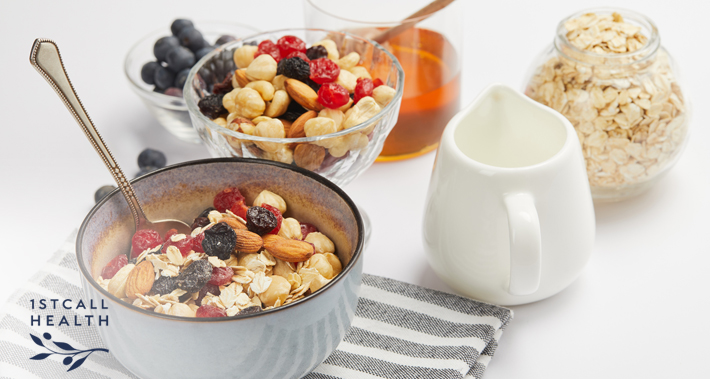
Heart disease is the leading cause of death in the United States.
But it’s also one of the most preventable diseases out there.
As a DC medical clinic, we are here to help you manage conditions like heart disease.
But what we really want is to help you avoid developing it in the first place.
In fact, heart disease is up to 90% preventable.
The habits and lifestyle you establish today can go a long way toward avoiding this deadly disease.
Keep reading to find out more about what heart disease is, and how to reduce your risk.
What Is Heart Disease?
Heart disease is an umbrella term used for a wide range of conditions related to the heart.
Some of the conditions which fall under heart disease include:
- Coronary artery disease (a build up of plaque in the arteries)
- Arrythmia (abnormal heart rhythm)
- Heart infections (can be due to viruses, parasites, or bacteria)
- Atherosclerosis (hardening of the arteries)
- Congenital defects (heart defects which are present from birth)
- Cardiomyopathy (a condition which causes the heart muscle to become weak)
Although they’re often grouped together, heart disease and stroke are not the same thing.
RELATED: How To Reduce Your Risk Of Stroke
How To Tell If You Have Heart Disease?
Some symptoms of heart disease will generally be present, no matter what type you have.
The most common one is chest pain and tightness.
Other symptoms which occur across different types of heart disease include trouble breathing, tiredness, and an abnormal pulse.
Beyond these, the symptoms of heart disease can vary, depending on the specific condition in question.
Let’s take a closer look at some of the specific symptoms you might experience, with each form of heart disease.
Symptoms of Coronary Artery Disease
When there is plaque building up which restricts blood flow into the heart and lungs, it might feel like:
- Indigestion
- Difficulty breathing
- Nausea
- Squeezing or pressure in the chest
Symptoms of Arrhythmia
If you are experiencing abnormal heart rhythms, either too fast, or too slow, symptoms may include:
- Feeling dizzy or lightheaded
- Fainting
- A heartbeat which is either racing or fluttering
Symptoms of Heart Infections
If you have an infection which affects your heart, such as myocarditis or endocarditis, you may experience:
- Rash of the skin
- Fever
- Chills
- Coughing or chest congestion
Symptoms of Atherosclerosis
When the blood supply to your hands, feet, arms, and legs is reduced because of atherosclerosis, you might feel:
- Unexplained pain
- Coldness and numbness in your arms and legs
- Weakness in your limbs
Symptoms of Congenital Heart Defects
Congenital heart defects are present from birth, but may go undiagnosed unless they start to cause symptoms, such as
- Skin which is slightly blue
- Swollen legs and feet
- Abnormal heart rhythm
Symptoms of Cardiomyopathy
If the heart muscle becomes too large or turns rigid, you might notice:
- A fast, thumping pulse
- Swollen limbs
- Bloating
How Does Heart Disease Present In Women?
Much of the research on the signs and symptoms of heart disease has been done in men.
However, over time, researchers have noticed that when women experience heart attacks the “tell tale” signs that tend to show up in men such as chest pain often don’t occur.
Symptoms of heart disease in women tend to include:
- Cold sweats
- Gas like pain, indigestion
- Pain in the jaw, neck, and back
- Nausea
- Fainting and lightheadedness
- Feeling dizzy
- Pallor
- Shallow breathing
What Causes Heart Disease?
Just as there are a wide variety of types of heart disease, there are also a variety of causes and risk factors which can contribute to it.
In some cases, one form of heart disease can lead to another.
For example, congenital heart defects and coronary artery disease can both also lead to arrhythmia.
Other factors which can lead to, or increase the risk of, heart disease include:
- Chronic anxiety
- Excess caffeine and alcohol use
- Substance misuse
- Viruses, bacteria, and parasites which can result in infection
- Sedentary lifestyle
- Hypertension
- Being overweight or obese
- Smoking
- High cholesterol levels
- Genetic history
- Ethnicity
- Age
- Sex
RELATED: Adaptogenic Herbs To Help Soothe Your Anxiety Naturally
How To Reduce Heart Disease Risk
Although some risk factors for heart disease, such as age, sex, and ethnicity are outside of your control, there are many factors which you can do something about.
Next, we’ll look at some actions you can take to lower your odds of developing heart disease.
1. Quit Smoking (Or Don’t Start)
If you’re a smoker, you’ve probably heard many reasons to quit.
It can lower your risk of lung cancer, you won’t have to worry about others complaining about second hand smoke, and you’ll smell better.
Another reason to quit is that smoking is bad for your heart health.
The chemicals in tobacco can result in damage to your cardiovascular system and lowers the amount of oxygen in your blood.
This means your heart has to work harder for your brain and body to get the oxygen it needs.
2. Avoid These Foods…
We’ve talked about the hidden dangers of processed sugar before.
The food you eat can have monumental effects on your health – for better or for worse.
And this is especially true for heart health.
Some foods which can be particularly tough on your heart include:
- Potato chips
- Ranch dressing
- Foods high in salt, sugar, and fat
- Processed meat
- Pop
- Ice cream
- White bread, pasta, and rice
- Baked goods
- Red meat
- Takeout pizza
- Butter
- Full fat, flavored yogurt
- Alcohol – too much may harm your liver as well
- French fries
- Fried chicken
- Bacon
- Canned soup
Now, you may have seen at least a couple of foods on this list and thought “I could never give that up”.
The point isn’t to completely deprive yourself, but to think of these as treats to enjoy every now and then, not the main component of your diet.

3. …And Eat More Of These Foods
Just as there are foods to avoid, some foods are good for your heart health.
To get the benefits, include more of these in your daily routine:
- Use fresh herbs and spices to flavor your food, instead of excess salt
- Almonds
- Brazil nuts – good for your thyroid as well
- Walnuts
- Tuna
- Salmon – high in vitamin D
- Tofu – a good vegetarian source of iron
- Oranges
- Black beans
- Edamame
- Oatmeal
- Olive oil
- Swiss chard
- Low fat yogurt – high in calcium
- Flaxseed
- Sweet potatoes – good for your kidneys and bladder as well
- Berries – high in vitamin C
- Dark, leafy greens – high in magnesium
4. Keep Your Stress Under Control
If you are under a lot of stress, it can contribute to your risk of developing heart disease.
Increased stress levels can cause your blood pressure to rise, but when your stress levels return to normal so should your blood pressure.
Chronic stress, however, can keep your blood pressure high.
Additionally, many people turn to unhealthy means of trying to combat stress, such as drinking, smoking, or indulging in unhealthy foods.
Healthier ways to manage stress can include exercise, or meditation and relaxation exercises.
5. Get Active
Physical activity has a lot of benefits, and not just for your heart.
Just thirty minutes of moderate physical activity each day can help lower your risk of heart disease.
And if you have trouble finding time to get in a thirty minute walk, you can break it up a little bit.
Even doing ten minutes in the morning, ten minutes at lunch, and ten minutes after dinner is beneficial.
As an added bonus, exercise can help you maintain a healthy weight, and lowers your chance of developing other conditions such as type 2 diabetes or elevated cholesterol levels.
6. Improve Your Sleep Hygiene
Not getting enough sleep can increase your risk for a number of health concerns.
These include high blood pressure, obesity, diabetes, and heart attack.
On average, most adults require an affect of seven to nine hours of sleep each night, but this number will differ for everyone.
Figure out how much sleep you need to be well rested, create a schedule, and make sticking to it a priority.
As well, maintaining sleep schedule every day, even on weekends and days you don’t need to get up for something specific is a good practice.
Other ways to improve your sleep hygiene include:
- Keep your bedroom dark and at a cool, comfortable temperature
- Avoid eating a large meal too close to bedtime
- Get exercise during the day – but beware, for some people too much exercise too close to bedtime can make sleep difficult
- Don’t use electronic devices such as computers, televisions, and smart phones too close to bedtime
- Don’t drink alcohol before bed
- Avoid caffeine in the afternoon and evening
- Take a warm shower before going to bed – the evaporation of warm water off your skin will help your body cool down and prepare you better for sleep
7. Keep Up With Your Health Screenings
Seeing your medical care provider regularly can help you to catch health issues early, so they can be managed properly with diet, lifestyle changes, or medications.
Some areas you’ll want to keep an eye on include screening for diabetes, cholesterol levels, and blood pressure.
Book Your Appointment With 1stCallHealth Today
Are you worried about your heart health?
Have some unhealthy lifestyle choices in your past led you to wonder if you might be at an increased risk of a heart condition?
Or maybe there are some genetic factors at play, and you want to do what you can to limit your risk because you can’t change your family history.
We’re 1stCallHealth, a concierge medical clinic serving the Washington DC area at an affordable price.
We want to be your partner in living your best, healthiest life.
Book your appointment with 1stCallHealth today.
1stCallHEALTH
1331 H St NW Ste 200,
Washington, DC 20005
(202) 590-0009
– https://goo.gl/maps/MVhjkz2jqynWpsgo6
1stCallHEALTH provides affordable access to primary care services. We believe that everyone deserves affordable, high quality primary care.
Our vision is to challenge the status quo, focus on the individual, and empower personal control to change the way we think about healthcare.




